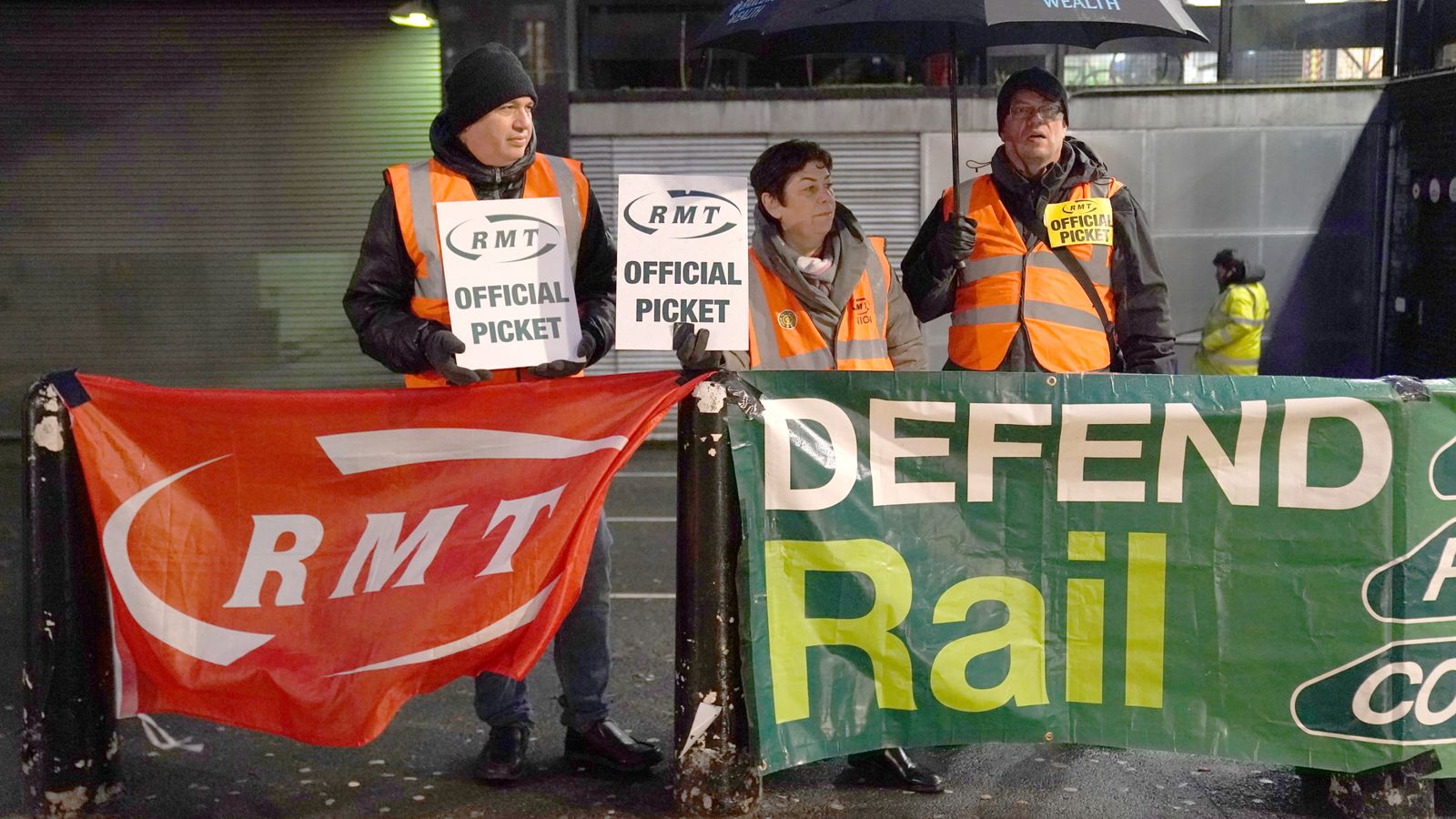The UK economy has lost more money due to rail strikes than it would have if the government settled the dispute with unions months ago, a minister has admitted.
Rail minister Huw Merriman told MPs the row has “ended up costing more” than a resolution but insisted the “overall impact” on all public sector pay deals must be considered.
Transport Select Committee member Ben Bradshaw put it to the minister that “we’re talking of a cost to the government of over a billion (pounds) so far” from the impact of strikes, which have disrupted services for several months.
Politics live: Starmer tackles Sunak over ambulance arrival times at PMQs
He asked: “That would easily be enough money to have solved this dispute months ago, wouldn’t it?”
Mr Merriman replied: “If you look at it in that particular lens, then absolutely, it’s actually ended up costing more than would have been the case if it was just settled in that part.”
However, he said it was important to look at “the overall impact on the public sector pay deals”, with multiple industries striking over pay in the face of soaring inflation.
Regulated rail fares in England will increase by up to 5.9% from March
Train operator TransPennine Express issues ‘do not travel’ alert
Esther McVey ‘forced to sit in luggage rack’ for train journey
“We also have to look on the ability for the reforms that don’t often get talked about, but they’re absolutely vital as part of the package,” Mr Merriman said.
“It’s the reforms that will actually pay for these pay deals and also make the railway more efficient in the long run as well.”
The hearing comes a day after train drivers with the Aslef and RMT union announced a fresh round of strikes next month after rejecting pay deals.
Please use Chrome browser for a more accessible video player
The first strike, on 1 February, will coincide with a walkout by 100,000 civil servants in their dispute over pay and jobs, a strike by teachers over pay and nationwide protests against the government’s controversial new strike law.
Union leaders have accused ministers of “torpedoing” a deal to end rail strikes by imposing a condition to extend Driver Only Operation (DOO) trains – something the RMT has said it will never accept.
But Mr Merriman insisted this has “always been a concept” and the government has not “interfered in a negative manner” during negotiations aimed at resolving the dispute over jobs, pay and conditions.
He pointed to settlements made with unions TSSA and Unite and said talks are ongoing this morning to end the row with RMT.
“I very much hope that will lead to settlement with the RMT, that have been responsible for 70% of industrial action over the last year,” he said.
Read More:
Rail companies given ‘permission’ by transport secretary to make new offer to unions this week
Fresh wave of strikes this month – who is taking action and when
Train services ‘unacceptable’
During the the hearing, Mr Merriman also accepted that rail services across the country are unacceptable.
Labour’s Mike Amesbury, who represents Weaver Vale in Cheshire, asked: “After 13 years of successive Tory governments, why are rail services in the north so utterly useless?”
The minister replied: “We do not find the levels of service across all train operators to be acceptable – cancellations are at 3.6% but in certain parts of the network they are a lot worse than that – if you look at TransPennine the figure is 11% – that figure is unacceptable.”
However he insisted this was due to “technical reasons” not “party political ones” – pointing to a reduction in drivers willing to work on rest days and the impact of COVID on training new drivers.
“A lot of it comes back to the need to reform working practices, because management do not have control over their operations,” he said.









